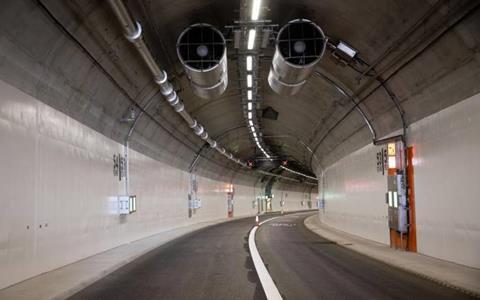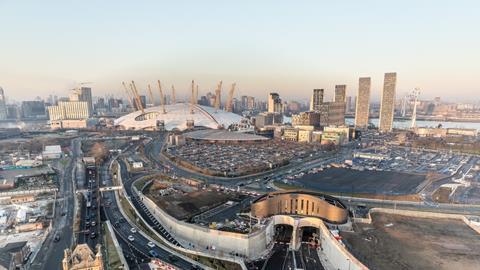The long-awaited Silvertown Tunnel in London opened this week with promises of significantly improved journey times – but operators have voiced disappointment at the high prices for HGVs.
The 1.4km tunnel, first announced in 2012, links Newham to the Greenwich peninsula and is sited next to the Victorian-era Blackwall Tunnel, which shuts hundreds of times a year.
Transport for London (TfL) said average journey time savings are expected to be up to 20 minutes at peak times.
London mayor Sadiq Khan said: “The new Silvertown Tunnel will transform travel in the south and east of our city, particularly across the River Thames, and will help to address the chronic congestion and poor air quality around Blackwall Tunnel.
“The new tunnel will reduce journey times, help to manage pollution levels and improve cross-river public transport.”
Off peak charges for cars and small vans is £1.50 and £5 for HGVs. During peak periods, HGVs must pay £10.

Logistics UK acknowledged that the route would increase network resilience and make journey times more predictable, but its senior policy manager Chris Yarsley said the toll charges would penalise essential delivery vehicles.
“Logistics UK has consistently supported the Silvertown tunnel project since its inception and, now it is open, the tunnel will play a key part in London’s road infrastructure,” he said.
“Road users have experienced significant bottlenecks at the Blackwall Tunnel and surrounding approach roads as there have been limited alternative routes to cross the Thames to the east of Tower Bridge.
“For HGVs, this was compounded by height issues at the Blackwall Tunnel which added additional time and cost to transport companies resulting in higher prices for London’s businesses, residents and visitors.”
However, he added: “It is disappointing that the tolls for large vans and HGVs are significantly higher than those for small vans and private cars.
“Industry recognises that road charges are necessary to fund new infrastructure, but larger vehicles do not have the options to switch to other modes of transport and essential delivery vehicles have little alternative option but to use the capital’s road network.
“Industry ends up paying disproportionately more towards construction costs than private road users, and TfL should introduce a flat rate of tolls for fleet operators while offering discounts for zero emission vehicles, which would be more in line with the current London congestion charge scheme.”



















